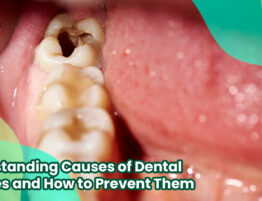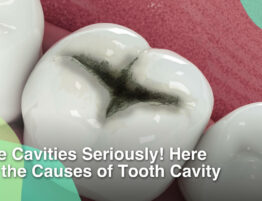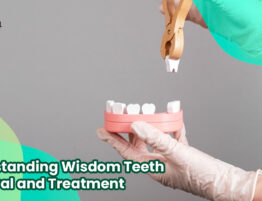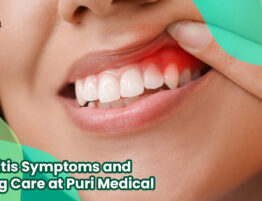
Halitosis disorder, commonly known as bad breath, is a prevalent oral health condition that can significantly impact one’s social interactions and self-esteem. It refers to unpleasant odors emanating from the mouth, often caused by a variety of factors. Understanding halitosis, its symptoms, causes, complications, prevention methods, and the importance of seeking medical attention is crucial for maintaining oral health and overall well-being.
What is Halitosis Disorder?
Halitosis is a condition characterized by persistent foul-smelling breath that is noticeable to others. It can be temporary or chronic, depending on the underlying causes. The odor may vary in intensity and can be caused by both oral and non-oral factors. Poor oral hygiene is a primary contributor to halitosis, but it can also be a symptom of underlying medical conditions.

Factors Contributing to Halitosis Symptoms
Several factors can contribute to the development of halitosis symptoms. These include:
- Poor Oral Hygiene: Inadequate brushing, flossing, and tongue cleaning can lead to the buildup of food particles and bacteria in the mouth, resulting in bad breath.
- Oral Infections: Gum disease, cavities, and oral infections can produce foul odors due to the presence of bacteria and decaying tissue.
- Dry Mouth: Reduced saliva production can lead to dry mouth, allowing bacteria to thrive and produce odorous compounds.
- Diet: Foods with strong odors, such as garlic, onions, and certain spices, can temporarily cause bad breath.
- Tobacco Use: Smoking and chewing tobacco can leave a distinct odor in the mouth and contribute to gum disease and other oral health problems.
- Medical Conditions: Certain medical conditions, such as respiratory infections, diabetes, liver disease, and gastrointestinal disorders, can cause chronic bad breath.
- Medications: Some medications can cause dry mouth or release odorous compounds when metabolized, leading to halitosis.
- Poor Habits: Skipping meals, crash dieting, and excessive alcohol consumption can affect saliva production and contribute to bad breath.
Symptoms of Halitosis Disorder
Common symptoms of halitosis include:
- Persistent foul breath
- Dry mouth
- White coating on the tongue
- Thick saliva
- Postnasal drip
- Sore throat
- Bad taste in the mouth
It’s essential to address these symptoms promptly to identify and treat the underlying causes of halitosis.
Read more article All About Dental Veneers Enchancing Your Smile
Causes of Halitosis Diases
Halitosis can stem from various oral and systemic factors. Some of the primary causes include:
- Bacterial Growth: The mouth contains millions of bacteria that feed on food particles, releasing sulfur compounds that contribute to bad breath.
- Poor Oral Hygiene: Failure to brush, floss, and rinse regularly allows bacteria to accumulate, leading to plaque buildup and gum disease.
- Periodontal Disease: Advanced gum disease can cause pockets to form between the teeth and gums, trapping food particles and bacteria.
- Dry Mouth: Saliva plays a crucial role in rinsing away food debris and bacteria. Reduced saliva production can result in dry mouth and halitosis.
- Oral Infections: Cavities, abscesses, and other oral infections can produce foul-smelling breath due to bacterial growth and tissue decay.
- Sinus Infections: Postnasal drip from sinus infections can contribute to bad breath by allowing bacteria to thrive in the nasal passages and throat.
- Dietary Factors: Foods with strong odors, such as garlic, onions, and certain spices, can temporarily cause bad breath.
- Tobacco Use: Smoking and chewing tobacco can lead to dry mouth, gum disease, and persistent bad breath.
- Medical Conditions: Certain medical conditions, such as diabetes, respiratory infections, liver disease, and gastrointestinal disorders, can cause chronic halitosis.
- Medications: Some medications can cause dry mouth or release odorous compounds when metabolized, resulting in bad breath.
Prevention of Halitosis
Preventing halitosis involves adopting good oral hygiene practices and addressing underlying risk factors. Here are some tips to help prevent bad breath:
- Brush your teeth at least twice a day with fluoride toothpaste.
- Floss daily to remove food particles and plaque between teeth.
- Clean your tongue using a tongue scraper or toothbrush to remove bacteria and debris.
- Rinse with an antimicrobial mouthwash to reduce bacteria in the mouth.
- Stay hydrated by drinking plenty of water to promote saliva production.
- Avoid tobacco products and limit alcohol consumption.
- Eat a balanced diet rich in fruits, vegetables, and whole grains.
- Visit your dentist regularly for professional cleanings and oral exams.
- Manage underlying medical conditions, such as diabetes or dry mouth, with appropriate treatment.
- Practice good overall hygiene, including regular bathing and washing clothes to prevent body odor.
Seek Professional Care for Halitosis
While occasional bad breath is normal, persistent halitosis may indicate underlying oral health issues or systemic conditions that require medical attention. If you experience chronic bad breath despite practicing good oral hygiene, it’s essential to consult a dentist or healthcare professional for evaluation and treatment. At Puri Medical, our team of experienced professionals is dedicated to helping patients maintain optimal oral health and overall well-being. Schedule an appointment today to address your halitosis concerns and receive personalized care and treatment recommendations. Don’t let bad breath affect your confidence and quality of life—take proactive steps to achieve fresh breath and a healthy smile.








